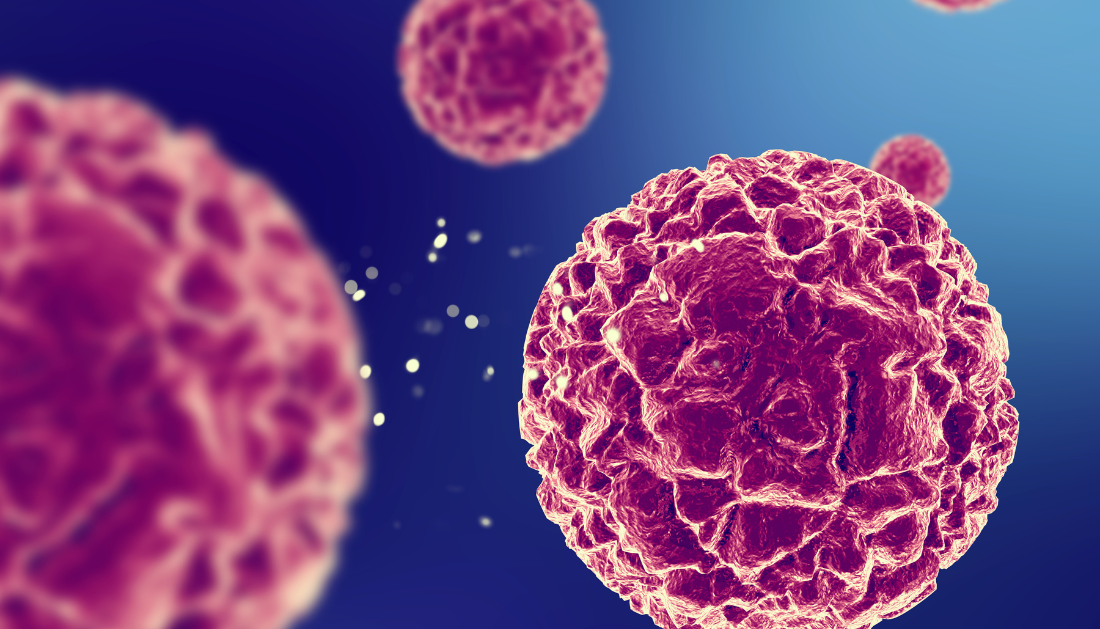

Women who are infected with a high-risk strain of the human papillomavirus (HPV) are four times more likely to die from cardiovascular disease, according to new research published in the European Heart Journal.
HPV is a highly prevalent infection, with high-risk types known to cause cervical cancer. Previous studies have suggested that HPV may also contribute to the formation of harmful plaque in the arteries. However, this is the first study to demonstrate a relationship between high-risk HPV infection and cardiovascular disease fatalities.
Professors Seungho Ryu, Yoosoo Chang, and Hae Suk Cheong of Sungkyunkwan University School of Medicine in Seoul, Korea, led the research. Prof. Ryu stated, “Despite great progress in treating well-known risk factors for heart disease, such as smoking, high cholesterol, hypertension, and diabetes, heart disease remains a leading cause of mortality.
“Interestingly, these conventional risk factors do not account for all heart disease cases; approximately 20% occur in people who do not have these difficulties. This emphasizes the necessity to look at other variable risk factors. Our research focuses on the impact of HPV, specifically on cardiovascular mortality, as a possible risk factor for heart disease.”
The study comprised 163,250 young or middle-aged Korean women who were free of cardiovascular disease at the time of enrollment. The women underwent a variety of health screenings, including cervical screening for 13 high-risk HPV types. The women went for health exams every year or two for an average of eight and a half years.
Stay informed and know more about the critical topics of women’s health at the upcoming OBGYN and Womens Health In-Person Conferences & Online Courses
Researchers were able to integrate data on the women’s HPV test results with national data on cardiovascular disease mortality, such as heart attacks and stroke.
As a group of relatively young, healthy women, their chance of dying from cardiovascular disease was modest (9.1 per 100,000 overall).
However, after controlling for other factors known to increase the risk of cardiovascular disease, researchers discovered that women with high-risk HPV had a 3.91 times greater risk of blocked arteries, a 3.74 times greater risk of dying from heart disease, and a 5.86 times greater risk of dying from a stroke than women without a high-risk HPV infection. Researchers also discovered that the risk was increased in women with a high-risk HPV infection and obesity.
Prof. Cheong stated, “We know that inflammation plays an important role in the development and progression of cardiovascular disease, and viral infections can cause inflammation. HPV is well-known for its association to cervical cancer, but new research suggests that the virus can also be identified in the circulation. It’s possible that the virus causes inflammation in the blood vessels, which contributes to blocked and damaged arteries and raises the risk of cardiovascular disease.
“This study emphasizes the value of comprehensive care for patients with high-risk HPV. Clinicians should keep a close eye on the cardiovascular health of patients with high-risk HPV, especially those who are obese or have other risk factors. People with high-risk HPV should be aware of the dangers associated with both heart disease and cervical cancer. They should get frequent health checkups and live a healthy lifestyle to lower their risk of cardiovascular disease.”
For more information: Human papillomavirus infection and cardiovascular mortality: a cohort study, European Heart Journal, https://doi.org/10.1093/eurheartj/ehae020
more recommended stories
 New Blood Cancer Model Unveils Drug Resistance
New Blood Cancer Model Unveils Drug ResistanceNew Lab Model Reveals Gene Mutation.
 Healthy Habits Slash Diverticulitis Risk in Half: Clinical Insights
Healthy Habits Slash Diverticulitis Risk in Half: Clinical InsightsHealthy Habits Slash Diverticulitis Risk in.
 Caffeine and SIDS: A New Prevention Theory
Caffeine and SIDS: A New Prevention TheoryFor the first time in decades,.
 Microbial Metabolites Reveal Health Insights
Microbial Metabolites Reveal Health InsightsThe human body is not just.
 Reelin and Cocaine Addiction: A Breakthrough Study
Reelin and Cocaine Addiction: A Breakthrough StudyA groundbreaking study from the University.
 Preeclampsia and Stroke Risk: Long-Term Effects
Preeclampsia and Stroke Risk: Long-Term EffectsPreeclampsia (PE) – a hypertensive disorder.
 Statins and Depression: No Added Benefit
Statins and Depression: No Added BenefitWhat Are Statins Used For? Statins.
 Azithromycin Resistance Rises After Mass Treatment
Azithromycin Resistance Rises After Mass TreatmentMass drug administration (MDA) of azithromycin.
 Generative AI in Health Campaigns: A Game-Changer
Generative AI in Health Campaigns: A Game-ChangerMass media campaigns have long been.
 Molecular Stress in Aging Neurons Explained
Molecular Stress in Aging Neurons ExplainedAs the population ages, scientists are.

Leave a Comment